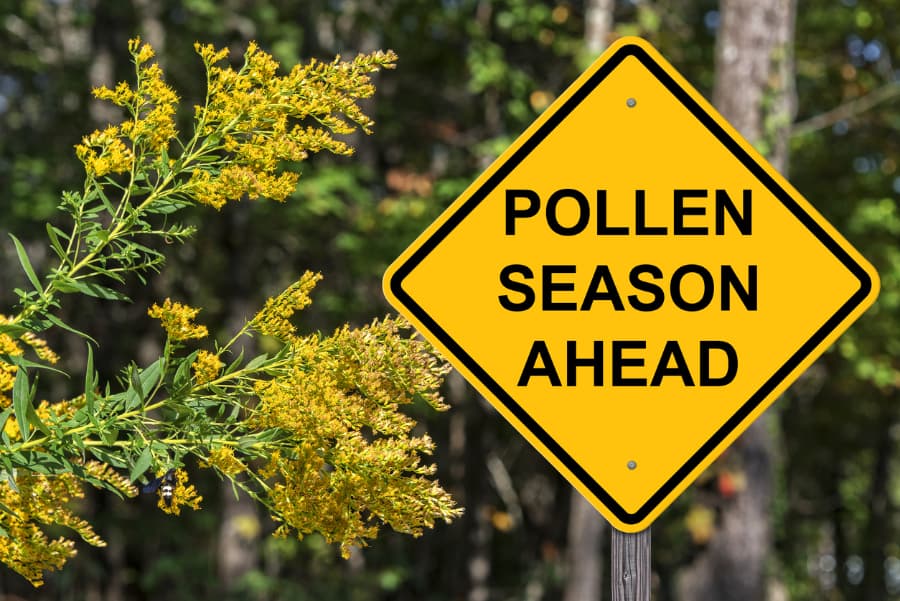Have you ever wondered why allergies seem to get worse as summer fades into fall? There’s a good reason. August brings warm days and cooler nights – the perfect trigger for the release of pollen by ragweed – the biggest allergy culprit in the fall. Wind-pollinated plants such as ragweed produce large amounts of pollen that are buoyant and float into the breeze covering everything around it. This continues through September and October and finally subsides with the first hard frost. Unfortunately, according to WebMD, 75% of people who are allergic to spring plants are also sensitive to ragweed.
During this period of out-of-control pollen, fall foliage dazzles the eye and then falls to the ground and starts to decay, becoming a breeding ground for mold. These light-weight, tiny spores spread like wild fire in the high humidity and windy conditions of fall.
Finally, just when the allergy season start to wane, dust mites, pet dander, and other indoor particulates get blown throughout your home as heaters are turned on. The cycle of allergy symptoms starts all over again.
Sounds awful, doesn’t it? Take it from the Coop, don’t let pollen, mold, mites, and other irritants stop you from enjoying life. There are things you can do to minimize these nasty foes of fall. Here are my suggestions for a higher level of comfort for allergy and asthma sufferers
- Shower frequently to remove pollen from your skin and hair
- Curtail walking in the woods or playing in the leaves!
- Open your car windows when you first turn on the car so any mold or debris can disperse to the outside.
- Wear a mask when raking leaves, cleaning gutters, and working in the garden
- Keep your windows closed and the AC turned on. Some pollutants are so miniscule that they sneak right through the tiny holes of your screens
- Clean/Replace the air filters of your heating and cooling equipment often so they work better and are more efficient. Even better, invest in a high quality air filtration system that is specifically designed to give you a higher level of protection from irritants in the air.
- Throw your clothes in the washer immediately after doing yard work or playing outside.
- Wipe down your pet after walks outside. Not only does pollen sticks to your furry best friend, but it, too, can suffer from seasonal allergies.
- Utilize a vacuum with a hepa filter which removes tiny particles that are missed by conventional vacuums. Be sure to replace the filter according to the manufacturer’s directions.
- Keep your shoes (along with dirt and grime) outside.
While following these suggestions isn’t a foolproof solution, it will certainly minimize the amount of contact you and your family have with pesky pollen, mold, and other irritants.






